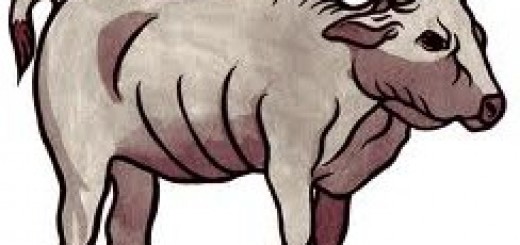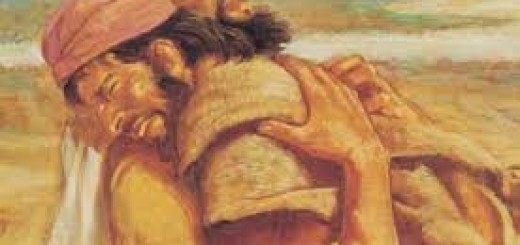By Rabbi Amiram Markel
On the words,[1] “and Yaakov was an ‘Ish Tam’- a man of purity” Rashi comments that Yaakov did not know how to deceive as did his brother Esav. Rather, he was a pure and honest person who always said with his mouth what he thought in his heart and he spent most of his time studying in the yeshivos of Shem and Ever. Esav, on the other hand, was a deceiver. When he was at home, he would act with excessive piety in order to give his father, Yitzchak, the impression that he was a G-d fearing person. However, when he was out in the “field”, that is, when he was out and about in the world, he was a totally different person. His entire relationship with the world was as a “hunter”[2]. His approach was, “How can I take advantage of whomever and whatever I meet in the world to fulfill my own lusts and desires?” He was impulsive and did whatever was necessary to get what he wanted. Nothing was below him. He resorted to deception, theft, rape and even murder to get what he wanted.
In other words, these two brothers were complete opposites. More so, they were opposites from conception, as the Torah tells us[3] that they contended with each other even in the womb. One was wicked by nature and the other was righteous by nature. We see throughout the account of Yaakov’s life that he generally dealt with people purely and honestly. For example, when he bought the rights of the first-born from Esav, his proposal was straightforward and honest. He said,[4] “As of today sell me your rights as a first born”. Also later, in his dealings with his Uncle Lavan, he was faithful and honest. It was Lavan who was the deceiver.
However, we could ask, if these were their natures, how is Esav blameworthy for his wickedness or Yaakov praiseworthy for his righteousness? The answer is that they both had the free choice to break their nature and go against their natural inclination for the sake of Heaven. It is specifically by breaking and going beyond one’s natural inclinations that a person reaches a higher level of spirituality and closeness to HaShem. Esav chose to follow his natural tendencies without restraint. On the other hand, Yaakov chose to break his nature for the sake of Heaven.
He did so specifically in the incident when he received Yitzchak’s blessings. He went with complete self-sacrifice, for the sake of Heaven, to make sure that the blessings would not go to Esav, thus strengthening the “Sitra Achera-the side of evil”, which would have the opposite effect of HaShem’s intention in creating the world. The risks were very high, for if his mission failed, the results could be that he would incur curses rather than blessings upon himself, as he said to his mother, Rivkah, “What if my father feels me? In his eyes I would be like a deceiver and bring a curse rather than a blessing upon myself.” Nonetheless, with his mother’s encouragement, he decided to act with self-sacrifice and do what, on the surface, would appear to be deceptive and against his nature.
However, even in this, he did not change his conduct and he spoke and acted honestly and truthfully, as always. The Torah tells us that when he came to his blind father, he said[5], “Father”. Yitzchak answered, “Here I am. Who are you, my son?” In other words, Yaakov and Esav had similar voices. Yitzchak immediately recognized that his son was speaking to him, but he didn’t know which one. Yaakov said to his father, “It is me. Esav is your first-born. I have done whatever you have told me. Please, get up and sit and eat from my provisions, so that your soul should bless me.” Yitzchak said to his son, “How did you find (food) so quickly, my son?” He answered, “HaShem, your G-d brought about the circumstance before me.”
At this point Yitzchak became suspicious, specifically because Yaakov did not change his normal manner of speech. Contrary to Esav’s speech, he spoke exactly as he always did; he invoked HaShem’s name and spoke with courtesy and respect. He went into the situation with complete faith and placed his trust in HaShem. Yitzchak said to Yaakov, “Please approach me so that I can feel whether you are my son Esav or not.” Yaakov approached his father Yitzchak and he felt him and said, “The voice is the voice of Yaakov, but the hands are the hands of Esav.” Because his hands were hairy like his brother Esav, Yitzchak did not recognize him and decided to bless him. He asked him once more, “You are my son Esav?” And he answered, “I am myself.”
After Yitzchak ate and Yaakov received his blessings, he left and Esav came. He spoke in an entirely different manner. He said in a commanding tone[6], “Get up, my father, and eat from your son’s provisions, so that your soul should bless me.”
From all the above, we see that Yaakov acted with complete self-sacrifice, faith and trust in HaShem to break his own nature, by not explicitly stating that he was Yaakov. It was specifically through breaking his nature in this way that he attained a higher level of spirituality and merited to receive the blessings.
May it be HaShem’s will that all the blessings that Yaakov received from his father Yitzchak should speedily come to complete fruition, with the true and complete redemption, through our righteous Moshiach. Amen.
[1] Genesis 25:27
[2] Ibid
[3] Genesis 25:22
[4] Genesis 25:31
[5] Genesis 27:18-24
[6] Genesis 27:31






















